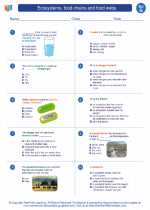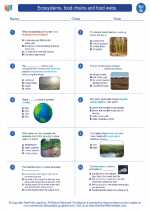Vitamin A
Vitamin A is a fat-soluble vitamin that is essential for maintaining good vision, healthy skin, and a strong immune system. It is also important for growth and development, and plays a crucial role in the function of many organs in the body.
Sources of Vitamin A
Vitamin A can be obtained from both animal and plant sources. Some of the best sources of preformed vitamin A (retinol and its esterified form, retinyl ester) include:
Provitamin A carotenoids, such as beta-carotene, are found in fruits and vegetables, including:
- Carrots
- Sweet potatoes
- Spinach
- Kale
Functions of Vitamin A
Vitamin A plays several important roles in the body, including:
- Supporting vision, especially in low light conditions
- Promoting healthy skin and mucous membranes
- Supporting immune function
- Participating in cell differentiation
Deficiency and Toxicity
A deficiency in vitamin A can lead to night blindness, increased susceptibility to infections, and poor growth. On the other hand, excessive intake of vitamin A can lead to toxicity, causing symptoms such as nausea, dizziness, and even liver damage.
Study Guide
- What are the sources of preformed vitamin A?
- Which fruits and vegetables are good sources of provitamin A carotenoids?
- What are the main functions of vitamin A in the body?
- What are the consequences of vitamin A deficiency?
- What are the potential risks of excessive vitamin A intake?
Understanding the importance of vitamin A and its sources, as well as the potential risks of deficiency and toxicity, is essential for maintaining a balanced and healthy diet.
.◂Science Worksheets and Study Guides Seventh Grade. Ecosystems, food chains and food webs

 Activity Lesson
Activity Lesson
 Worksheet/Answer key
Worksheet/Answer key
 Worksheet/Answer key
Worksheet/Answer key
 Worksheet/Answer key
Worksheet/Answer key
 Vocabulary/Answer key
Vocabulary/Answer key
 Vocabulary/Answer key
Vocabulary/Answer key
 Vocabulary/Answer key
Vocabulary/Answer key
 Vocabulary/Answer key
Vocabulary/Answer key
 Vocabulary/Answer key
Vocabulary/Answer key
